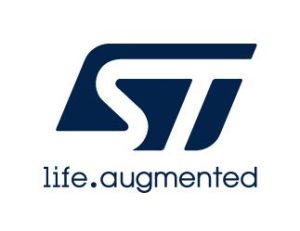The year 2021 has been a tough year for everyone. Industries across the globe were shut, companies were barely floating above the economic ocean, in fact, and this year had pushed the whole world almost 2 to 3 years backwards, when all we were aiming was to achieve the things new and unheard-of milestones. The unprecedented outbreak of Covid 19 had a fierce impact on all the sectors of the global economy. Businesses that were hoping to expand and grow were now barely surviving, and no sector remained untouched from the horrors of the pandemic.
However, things are changing their course now. As the whole world is rapidly moving forward with vaccination drives, the blanket of the outbreak is being pushed away. Businesses and industries are going back to Normal, but with a ‘New Normal’. They are optimistic to recover the damage that has been made by the pandemic and foresee a brighter future for their operations.
ELE Times in its Mega Story, had a candid conversation, with several companies, where they reflect back upon 2021, discuss the optimism for the next year, and provide an outlook for 2022, for their respective industry.
—————

MadhukarTripathi, Associate Director- Optical Business & Marketing at Anritsu India
Industry Developments: Connectivity will be a key focus in 2022. From a Telecom perspective, the industry is expecting more deployment of 5G networks across the world. As far as the Indian market is concerned, we expect a 5G spectrum auction will take place and we can expect some limited area 5G services during 2022. 5G trial is already completed by some technology provider in association with mobile operators. We also feel 5G devices cost will reach a more acceptable level to make it successful. Broadband access for more and more populations is also on cards in 2022. It will improve social life.
Market Trends: Connected lifestyle will be one of the major changes in the next few years. Software-Defined Networks, Quantum Computing/ communication, Edge computing, Industrial IoT (IIT), Industry 4.0, Digitization & virtualization of work process/flow, Artificial Intelligence (AI), Machine Learning (ML), Cyber Security, Application of Robotics in many days to day application etc. will trend to be followed in next 2-3 years.
—————
STMicroelectronics:
2021 is an unprecedented period – a very challenging year for many industries and for the semiconductor industry in particular.
The shortage of semiconductors that have been experienced globally is related to the fast recovery of the economy following the initial impact of the pandemic. But it is also related to an ongoing transformation of two of the markets we address i.e. automotive and industrial.
The automotive industry is moving to electrification and digitalization. The changes in car architecture enabled by these two shifts has opened the market to new players across the value chain, changing some of the market’s dynamics and key players. Here, Asia and China, in particular, are finding success.
The Industrial market is also undergoing a transformation, to meet the challenges of the “green economy”, of smart industry, of smart cities, of smart buildings. And these transformations are boosted by the government’s incentives accelerating the changes.
The key impact of the pandemic, beyond the short-term economic impact, has been the acceleration of those transformation trends, which reflects into all industries we serve with higher-than-initially anticipated growth rates or system architecture changes.
Finally, we are also seeing changes in the global economy, which is moving from complete globalization to partial regionalization in some areas.
—————————

Monojit Samaddar, Country Director, VIAVI Solutions
Industry Developments: In the Indian market, we will likely see the first 5G auctions in early 2022, making India a 5G country for the first time. Considering that India is ahead in many aspects of technology globally, we’re certainly playing catch-up with 5G. From the State of 5G report from VIAVI back in June, we can see that there are already 65 countries with 5G availability.
However, you could make the case that India has a “second-mover advantage” and can turn this apparent negative into a positive.
Market Trends: In evolving 5G and fibre networks, we can expect to see some of the benefits being discussed now to come to fruition in the next 2-4 years. To give you an example, there is a lot of discussion around openness and disaggregation in networks currently. Obviously, a major driver for this is to bring down costs through standardized hardware – which is already happening in many cases – but some of the other benefits may take more time and more effort to materialize. We’re not at the point where this is happening at scale, but the movement towards it is absolutely picking up speed. We’ll be hearing a lot more about RIC (RAN Intelligent Controller) in the coming year or two and no doubt the realized benefits will likely happen in the next 2-4 years.
—————

Ganesh Moorthy, President & Chief Executive Officer Microchip Technology Inc
Industry Developments: 2021 was a strong year for the industry and a record year for Microchip. In the face of significant supply constraints, Microchip ramped production to meet the growing demand. In CQ4’21, we are on track to ship 29.4% more than we shipped in CQ4’20! Demand though grew even faster and Microchip and the industry remain supply-constrained as we approach 2022. Microchip expects that 2022 will also be a strong growth year with supply constraints persisting through most of the year, despite us bringing on more supply to try and satisfy demand. Our short-term growth strategy is to increase capacity to satisfy demand. Our mid to long term growth strategies is to focus on designing total system solutions for our customers which take advantage of our broad portfolio of devices. We want to provide more products in every design we are engaged in and focus on major market megatrends to give us even faster growth.
Market Trends: The major megatrends for Microchip are 5G infrastructure, IoT/edge computing, data centre, electric vehicles, Advanced Driver Assistance Systems (ADAS) and Artificial Intelligence (AI)/Machine Learning (ML).
————-

Ramesh Babu, Chief Information Officer, DigiKey
Industry Development: Wireless connectivity, industrial automation and electrification, among many other trends, will continue to drive innovation in 2022 and for many years to come, and Digi-Key will continue to provide all the components and services necessary to fuel that innovation. We view IoT as a key industry trend that will continue to drive significant growth in 2022. Demand from nearly every industry vertical continues to drive significant interest and investment in IoT development and implementation. In the past year, there has been a surge in new product introductions in every industry, from automotive to medical, industrial automation to consumer devices and everything in between, and we look forward to that pace of design and new product introductions continuing in 2022.
Market Trends: IoT, AI, machine learning, automation, wireless connectivity and electrification will continue to drive innovation in 2022 and beyond, and will impact nearly every industry. Connected sensors will be important in collecting data and informing decisions. These trends will drive and enable everything from “smart cities” to alleviate growing challenges in many urban centers to agriculture to transportation and industrial applications to improve safety and productivity in factories. Sustainability will also continue to be an important factor across all areas that these emerging technologies will help to support
————-
Oliver Rovini – Technical Director, Spectrum Instrumentation GmbH

Industry Developments: At Spectrum Instrumentation we see the Test and Measurement market continuing to follow the trend that started way back in the 1980s. That’s the creation of more and more digital measurement devices. These products will need to make faster measurements with better accuracy and precision. Improvements to measurement speed lead to better productivity, particularly in automated processes, while enhanced accuracy allows tighter tolerances. That in turn enables better quality control. This will drive innovation in both analogues to digital and digital to analogue technologies where we can expect to see faster sampling rates and higher resolutions.
Market Trends: Data transfer and PC based signal processing speeds will increase in 2022. The use of next-generation PC bus systems will become more common, and economical, as new products are rolled out by major PC manufacturers. Spectrum will use these faster bus systems to allow data to be processed and analysed using the latest processor (CPU and GPU) technologies. This opens up new applications where intensive signal processing is required.
——————
Anil Challyil, Global Technical Marketing Manager, element14

Industry Developments: As global demand for chips continues to rise, and global fabs expand their production capacity worldwide, it is anticipated the chip supply crunch will alleviate in the second half of 2022 and/or 2023. There will be considerable progress in three major semiconductor sub-industry sectors: IC design, IC manufacturing, and IC packaging and testing. We will also see significant growth in the Internet of Things (IoT) sector as the industry is increasingly embracing the IoT sphere.
The industry developments in 2022 will include:
Predictive Maintenance: Equipment breakdown can wreak havoc with a company’s production schedule. This results in a significant revenue loss, especially when repairs may take a considerable amount of time. This can make prevention a priority for the majority of businesses. One of the increasingly common ways of doing so has been with predictive maintenance
Moving from B2B to B2B2C: Electronics manufacturers are shifting to the business-to-business-to-consumer (B2B2C) model in recent years, which allows manufacturers to sell directly to consumers. This has allowed for a variety of benefits. Prominent among these has been an increased profit, as companies can avoid factoring in a retailer.
VR & AR: Virtual reality (VR) and augmented reality (AR) allows designers to make more accurate and reliable changes to a product before the production phase begins. As a result, there have been a few areas for which this has been beneficial. For example, designers can make modifications to products quickly, while reduced inspection time can help workers identify and fix errors before a product is made.
Market Trends: The next four years will bring many exciting technological advances. These include:
- Blockchain is a distributed ledger technology that enables sharing of an immutable ledger among network participants. It is the future because it can help in tracking and trading almost anything of value on a virtual platform.
- Artificial intelligence has acted as the main driver of emerging technologies like big data, robotics, and IoT, and it will continue to act as a technological innovator for the foreseeable future.
- Cloud computing benefits abound as more and more companies utilize cloud applications. Perks like effective collaboration and content sharing are some of the reasons why cloud computing is so attractive
- 5G could affect a wide range of industries, from healthcare to financial services to retail. It is transforming connectivity. 5G will be essential as the number of IoT devices rises
——————

Sangeeth S Nambiar, Head of Bosch Research and Technology Center, India
Industry Development: The tremendous progress that we have witnessed in the past years in advancing the state of the art in what is often referred to as “narrow AI” and its applications is expected to continue in the years ahead.
Market trends: We will continue to see devices around us becoming smarter and being able to provide more assistance to their users. In manufacturing, we will continue to see improvements in efficiency and speed derived from advances in planning, better coordination of operations, optical inspection, preventive and assisted maintenance. In engineering, AI can be leveraged to reduce the design time by either suggesting or evaluating numerous design choices automatically and to further assist engineers to convert designs into implementations faster and with better quality.
———–

Melbs LeMieux, Co-founder and President of Electroninks, Inc.
Industry Development: We see several macro-trends emerging in 2022. A few that jump out are the utilization of conductive inks in semiconductor packaging/manufacturing, and the continued expansion of foldable displays.
Market Trends: Related to our core particle-free conductive ink business, we are expanding our product offering to include copper, nickel, and silver/nickel alloy inks. All three would be first-in-market worldwide in terms of the metal complex based conductive inks based on these materials. For our consumer business, Electroninks will debut a new product in early 2022 called CircuitSticker, which is an interconnect built into a plastic (deformable) sheet with an adhesive backing that will be sold directly to our existing consumer customers. This product will function as a replacement for the current modules found in our CircuitScribe product. CircuitSticker has been developed in coordination with various technology partners worldwide. This new iteration of CircuitScribe will reduce entire kit costs by 50% compared to magnetic modules. Electroninks believes that the CircuitSticker product is much easier to use than the current magnetic modules included in the CircuitScribe product.
———–

Narayan Ramamoorthy, Chief Revenue Officer, Global PayEX
Industry Developments: Undoubtedly 2021 has been a year of transition in B2B where COVID-19 accelerated reliance on cashless and digital payments and processes. There has been increased adoption of digital finance initiatives by large and midsize Indian and MNC companies. Key focus areas – core AR/ AP process automation, digitization via EIPP (electronic invoice presentment and payment) in Accounts receivable (AR) and vendor portals in accounts payable (AP) automated reconciliation, electronic payments (v/s cheques) and digital lending. In 2022 I expect to see a significant acceleration in all these themes.
Market Trends: India is already rapidly moving away from cheques to digital payments – this will continue to accelerate. The open banking movement will accelerate both in India and globally. AR/ AP digitization and automation – all the basic functions of reading documents, matching/ reconciliation/ validation, ERP entries related to posting and accounting will be automated. AR/ AP teams will increasingly focus on analytics and working capital optimization. Analytics – as the data sets improve, the focus will be on several working capital metrics with sophisticated predictive capabilities (e.g. cash flow forecasting) and machine-based recommended actions (e.g. dunning for collections, credit periods by customer). Financing – we expect a significant increase in lending enabled by both data (cash flow data) and digital capabilities across SME / MSME segments and across both domestic and cross-border (import/ export).
———–

Ray Bellavance, VP of Global Sales & Marketing, MicroCare, LLC
Industry Development: MicroCare is expanding through organic growth and acquisition. New research and development are allowing us to engineer and formulate products to address the industry needs for producing perfectly clean products that utilize the most environmentally compliant and responsible ingredients. This continued commitment to R&D and working with key customers will lead to the launch of some truly disruptive and revolutionary new critical cleaning products in 2022.
Market Trends: Here at MicroCare we’re confident the industry-wide focus on producing miniature, compact and zero-defect PCBs, will continue in 2022 to catch up with global demands. Multiple technologies are in development to support that including electronic moving vehicles and alternative energy, especially wind, solar and batteries for energy storage. We’re also encouraged to see the rebirth of space exploration. MicroCare looks forward to playing a critical role in helping the players in all those spaces get perfectly cleaned parts and networks.
———————-

Amit Kushwaha, Head Brand Strategy, Gameskraft
Industry developments: The gaming industry is at the cusp of a major growth trajectory and there is no doubt that the COVID-19 pandemic, which resulted in lockdowns, has accelerated online gaming in India in terms of an increase in the number of users, growth, and engagement. This is possible only through innovation and product development which gaming companies need to constantly work on in order to make games more engaging and trustworthy. In terms of development, we foresee that the focus of the industry is going to be on how to make games more interesting and engaging and give users what they are looking for.
Market Trends: The rise in the use of games to socialise has been accelerated during the COVID-19 lockdown measures. As the gaming industry continues to evolve, constant advancements continue to take place. I think the first and foremost is innovation in payment technology which will be a game-changer for all the Real Money Gaming (RMG) platforms out there. Payments have become more cashless, instant, and secure and this has resulted in faster payments and withdrawals for our players.
Secondly, ensuring smoother gameplay must be the topmost priority for every gaming platform through improved monitoring and automated methods to spot potential issues proactively. These are some of the gaming trends that are likely to grow as technology advances. Intensifying competition between game developers will also be an important factor in driving the gaming experience.
————————

Dill Ha, General Manager APAC, Congatec
Industry Developments: The major industry development for 2022 will be edge computing in all of its flavours – from low-power gateways with AI and connected vehicle computers with embedded vision intelligence, up to fully-fledged rugged edge servers and datacenters. Especially for the latter, the demand will be enormous. And with COM-HPC, a new Server-on-Module standard is starting to gain a foothold, opening totally new options for sustainable engineering of rugged server technologies due to its modular concept.
Market Trends: The edge computing trend will continue for the next years to come. As mentioned above, applications such as machine vision, automated guided vehicles, smart factory and collaborative robots are just a few industry examples requiring more and more artificial intelligence (AI) and big data analytics at the edge and vertical connectivity to the company clouds as well as the sensors in the field. As a consequence, more and more functions are being consolidated onto one hardware platform by leveraging virtualization with real-time hypervisors like the one from our daughter company Real-Time Systems. This reduces system costs and simultaneously increases reliability and resilience compared to multiple distributed systems. This can only be achieved with high-performance, high-bandwidth edge servers. This leads to the second major trend: real-time networking, for example in smart factories. To this end, we have launched a Time-Sensitive Networking (TSN) initiative to enable real-time Ethernet communication based on open standards. Since TSN even supports single-pair Ethernet, it can replace both proprietary industrial Ethernet protocols and fieldbuses. The third trend pertains to system consolidation. Here, OEMs need a simple way to easily partition their multicore-based designs. This means assigning the individual resources to the relevant virtual machines without increasing latency, i.e., without losing real-time capability. To achieve this, we not only offer validated packages but also support customers with the extensive real-time hypervisor expertise we acquired with Real-Time Systems.









